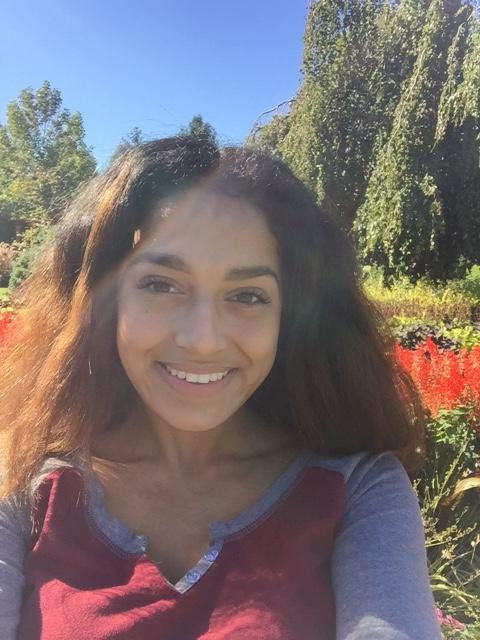Out of Our MiNDS
Secondary School Messengers form a Complex with Neuroscience Labs
Secondary School Messengers form a Complex with Neuroscience Labs
AUTHOR: Ashley Bernardo
Current MiNDS students organize co-op placements for high school students in Neuroscience laboratories at McMaster. Here you can learn more about the program and hear from our very own co-op student, Elysha.

Our high school co-op placement program was started by MiNDS alumnus Elyse Rosa a few years ago. Each semester, program faculty are welcome to supervise high school co-op students through our co-op placement program. Students in the program gain first-hand knowledge and experience regarding how research is conducted in an academic setting. Working in cooperation with the Hamilton Catholic District School Board, the program seeks students who are interested in working in wet labs and/or clinical settings to complete their high school credits. This semester we were fortunate enough to catch up with current co-op student Elysha and discuss her experience.
Tell us a little about yourself.
My name is Elysha Springer and I'm a co-op student in the Foster lab. I have a passion for science, specifically neuroscience, and I hope to pursue studies in biology and chemistry in post-secondary school. I'm a goal-oriented honour roll student who enjoys reading and volunteering.
What made you want to pursue a co-op position in a neuroscience lab, specifically Dr. Foster’s lab?
I chose to pursue a co-op position in a neuroscience lab, specifically Dr. Foster’s lab, because throughout high school I've thoroughly enjoyed science classes, especially biology. I think the human brain is so intricate and amazing with all of its different components and functions. I plan to be a psychologist and have always found empathy and how we experience emotion so intriguing, so getting an opportunity to see the research side of neuroscience proved to be a really great opportunity. I've always wanted to have a career I loved and can help people with, so being somewhere in the area of psychology seems to be a great option for me.
What kind of work do you do at your co-op placement?
During my co-op placement I have had the opportunity to learn different aspects of neuroscience like how DNA is replicated, information about neurons and glial cells, and different facts about areas of the brain and their functions. I've gotten to see several experiments, and even completed some of my own, like a protein Lowry to practice pipetting skills, and DNA isolation of a strawberry. I've also done a number of reports on some different neuroscience articles I found interesting. I chose to focus on depression and its different treatments, which has become a new area of interest of mine. This has been a once in a lifetime learning opportunity.
Tell us about the most interesting thing you learned while working in Dr. Foster’s laboratory.
The part I found most interesting is what I learned about the hippocampus, and how it can shrink, and a loss of neurons can occur with age. I also found it interesting that cortisol inhibits the immune system during long stressful time periods but when someone takes a break, the cortisol no longer inhibits the immune system, so this is the time that most people can get sick because the immune system is no longer put on hold.
We are thankful that Elysha could tell us about her co-op experience. The co-op program is currently looking for faculty who are interested in supervising a student next semester. This program does not require students to be paid and co-op program coordinators help arrange interview dates and times with the applicants. If you have any further questions about the program or are interested in supervising a student please contact Shreya Prashar, Lisa Dyce or Ashley Bernardo at macmastermindscoop@gmail.com.